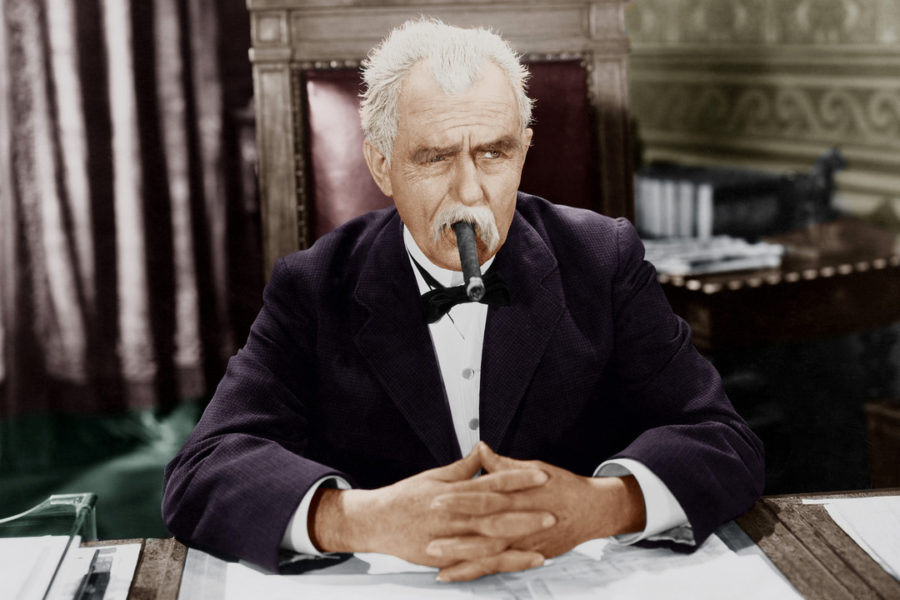Does a CEO’s salary inspire leadership?
“I’ve been at the helm of this company for more than 30 years”, he explained. “I was here from the beginning”.
Albert smiled and paused for a bit. He knew he had them.
He gritted his teeth and stated firmly, “If I left today, there would be no one to fill my shoes”.
This was true. He governed management through a system of divide and rule, which was effective in getting things moving. But, it also meant that without him there would be anarchy. Internal rivalries would rip the company apart, which made him indispensable.
He earned 300 times more than the average employee and he didn’t believe in self-sacrifice. It was all about self-preservation and this was the example he set. He wasn’t interested in unnecessarily retaining employees because he was running a business and not a charity. If his employees were an asset, their performance could become impaired, which meant they could be written off and then swiftly replaced. This was the law of the jungle.
Some of his shareholders weren’t happy. He was earning tens of millions a year as the CEO and he was holding them to ransom. They knew that if he resigned, it would wipe out a huge junk off the share price because the market had priced in his achievements.
When the say-on-pay legislation was passed in the US, he laughed. All it did was make his pay package legitimate because the shareholders had to agree to it. They had no say really.

This is a fictional story and it’s not necessarily meant to reflect reality. However, it does represent the mindset that many investors and employees have. I don’t doubt for a moment that a CEO’s job is tough. It takes a very special individual with a specific skill-set to do the job well. They must take risks and every transaction they make is scrutinised. If you ask any board of directors, they will tell you that these individuals are hard to find.
I also agree that talented CEOs should be rewarded well, if they perform well. However, the salaries of top CEOs have beaten the S&P 500 by almost double in the last thirty years.
Is this excessive?
Or is this justified given the faster pace, increased complexity and great competitive brutality CEOs now face?
The answers to these questions are very subjective and depends on the perspective.

Prior to the 1970s the norm was to use an internal benchmark to fairly determine a CEO’s pay. This was typically a multiple of what the average employee earned. Then in the late 1970s this shifted to using external benchmarks, which is the system used today. The argument was that market forces can determine the right pay level of a CEO more efficiently.
What happens is that independent advisors look at what CEOs are paid at comparable companies. The board uses this information to make a reward, which it often sets above the median of the peer group. This is to reward the CEO and provide an incentive for them to work harder.
Unfortunately, this system also leads to a “one potato, two potato, three potatoes more” scenario among highly paid CEOs.
The other irony is the long-term measure of performance used to align a CEO’s interests with the shareholders. The most obvious and quantifiable metric here is the share price. In the early 1990s compensation using stock options became common. Unfortunately, this occurred at the beginning of one of the strongest bull markets in the twentieth century. The result has been in some cases a focus on pumping up a stock’s price rather than managing the business in some instances.

Now casting morality aside, are highly paid CEOs actually good or bad for business? The reality is that even the best paid CEOs can be comfortably financed, especially if the corporation generates revenues in the billions. I’m sorry to say but highly paid CEOs are still highly affordable.
Perhaps a highly paid CEO’s remuneration can actually inspire employees to work harder and compete to earn more. In economics they call this “Tournament Theory”. However, more and more management studies have shown just how ineffective this carrot and stick culture is, which has emerged from high pay. It inspires no loyalty. In fact, in the case of the banking industry prior to the financial crisis, it proved quite toxic.
A really good point of reference here are Jim Collin’s books From Good to Great and Built to Last. What these extremely extensive studies revealed was that highly paid CEOs are not necessary the best leaders.
Jim Collins sums it up nicely in a separate article on deposed Tyco CEO Dennis Kozlowski who received a $100 million severance package:
“Imagine the absurdity of paying a CEO $100 million for performing so badly that he gets fired”.
Marketing guru Simon Sinek also makes an interesting point in Leaders Eat Last. In the corporate world, many CEOs focus on managing businesses rather than leading them. Managing is important day-to-day, but leadership is needed to make a company go places.
Interestingly, as an investor, how do you price this going places leadership concept into the value of a company?
Warren Buffett’s answer is simple: get to know and trust a CEO well, over the course of several cycles. This sounds like good old school active investing, where some things can’t be simply quantified/
The conclusion here is that good leaders add value. But to be a good leader, you need to be humble, put others in front of you and become self-sacrificing.
Surely, these qualities cannot be revealed by a CEO’s pay?











